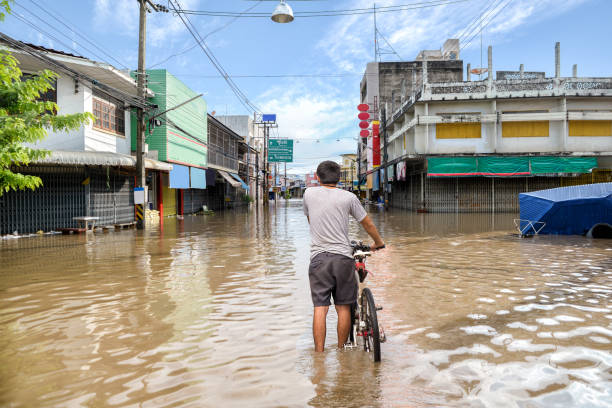Natural disasters are extreme, sudden events caused by environmental factors that can be catastrophic for communities and individuals. Examples of natural disasters include hurricanes, earthquakes, tornadoes, floods, and wildfires. These events can cause widespread damage to homes, businesses, and infrastructure, and can disrupt essential services such as electricity and water.
In the aftermath of a natural disaster, it is important for individuals and communities to be prepared and to have a plan in place to ensure the safety of themselves and their loved ones. This includes understanding what your insurance does and does not cover in the event of a natural disaster, and taking steps to protect your property and possessions.
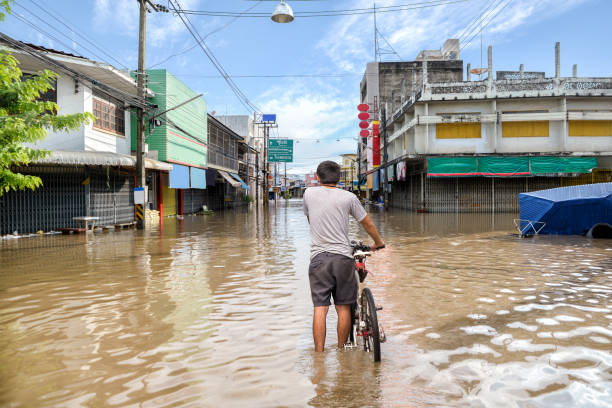
Types of natural disasters commonly covered by insurance
Natural disasters can take many forms, and insurance coverage for these events can vary depending on the specific policy and the type of disaster. Some common types of natural disasters that are often covered by insurance include:
- Storms: This can include events such as hurricanes, typhoons, and tornadoes. Coverage for storm damage is typically included in most standard homeowners and business insurance policies.
- Floods: Flooding can be caused by heavy rain, overflowing bodies of water, or a malfunction of a man-made system, such as a dam. Flood insurance is typically a separate policy and is not included in standard homeowners or business insurance policies. It is important to note that flood damage is not typically covered by standard insurance policies, so it is important to purchase a separate flood insurance policy if you live in an area prone to flooding.
- Earthquakes: Earthquakes can cause damage to homes and businesses through ground movement and the collapse of structures. Earthquake insurance is also typically a separate policy and is not included in standard homeowners or business insurance policies.
- Wildfires: Wildfires can cause damage to homes and businesses through direct contact with the flames or through smoke and ash. Coverage for wildfire damage is typically included in standard homeowners and business insurance policies.
It is important to carefully review your insurance policy and understand what types of natural disasters are covered, as well as any exclusions or limitations. It may also be a good idea to discuss your specific needs and concerns with an insurance agent to ensure that you have the appropriate coverage for your area and your property.
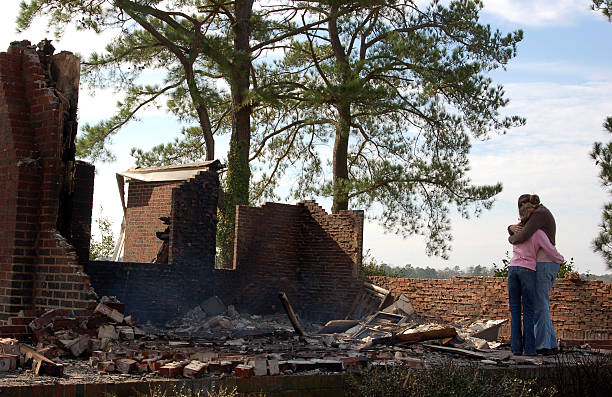
Understanding your insurance policy’s coverage for natural disasters
Understanding your insurance policy’s coverage for natural disasters is crucial in the event that you need to file a claim. It is important to carefully review your policy to understand what types of natural disasters are covered, as well as any exclusions or limitations.
In general, standard homeowners insurance policies cover damage caused by storms, wind, hail, lightning, and wildfires. However, coverage for other natural disasters, such as earthquakes and floods, is typically not included and must be purchased as a separate policy. It is important to note that even if a natural disaster is covered under your policy, there may be limits on the amount of coverage provided and certain types of damage may not be covered. For example, your policy may cover the cost of repairing or rebuilding your home, but not the cost of replacing personal belongings such as furniture or clothing.
It is also important to understand your policy’s deductible, which is the amount of money that you are responsible for paying out of pocket before your insurance coverage kicks in. Deductibles for natural disaster claims can be higher than those for other types of claims, so it is important to be aware of this and to budget accordingly.
If you are unsure about your policy’s coverage for natural disasters, or if you have questions about what is and is not covered, it is a good idea to contact your insurance company or agent for clarification. They can help you understand the specific terms of your policy and assist you in making sure that you have the coverage you need.
How to File an Insurance Claim for a Car Accident
What is not typically covered by insurance in the event of a natural disaster
Natural disasters, such as hurricanes, earthquakes, and floods, can cause significant damage to homes and personal property. While insurance can help cover the costs of repairing or replacing damaged items, there are some things that are not typically covered by insurance in the event of a natural disaster.
One common exclusion is damage caused by floods. Most standard home insurance policies do not cover flood damage, and a separate flood insurance policy is usually required to be protected. This is because floods are considered a high-risk event and can cause widespread damage over a large area.
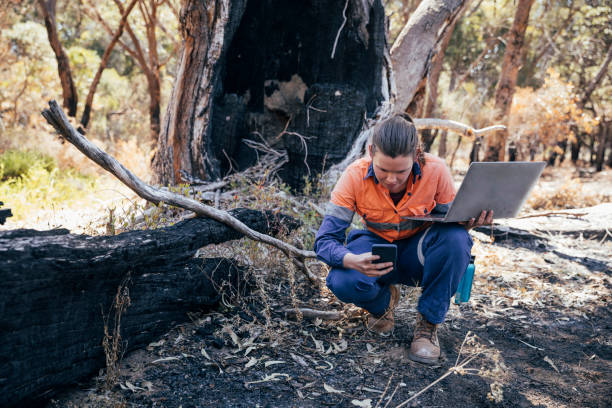
Another exclusion is damage caused by earthquakes. While some insurance policies may offer optional earthquake coverage, it is not typically included in a standard policy. This is because earthquakes can be difficult to predict and can cause significant damage over a wide area.
Other exclusions that may not be covered by insurance in the event of a natural disaster include:
- Damage caused by a lack of maintenance: If your home or personal property is damaged due to a lack of proper maintenance, your insurance policy may not cover the costs of repair or replacement.
- Damage caused by war or terrorism: Most insurance policies do not cover damage caused by war or terrorism.
- Damage caused by pests: Damage caused by pests, such as termites or rodents, is generally not covered by insurance.
- Damage caused by pollution: Some insurance policies may exclude damage caused by pollution, such as contamination of your home’s water supply.
It’s important to carefully review your insurance policy to understand what is and is not covered in the event of a natural disaster. You may need to purchase additional coverage or endorsements to ensure that you are adequately protected.
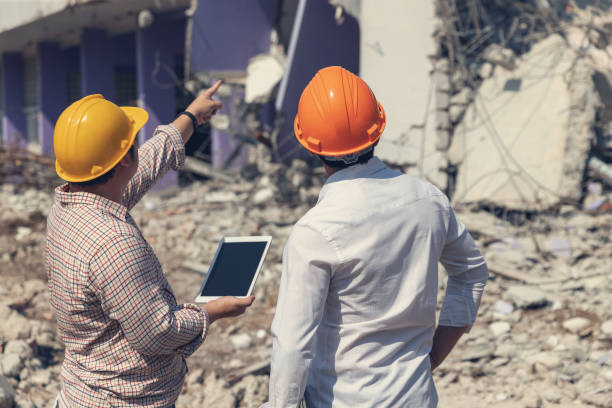
Steps to take before a natural disaster strikes to ensure proper coverage
Natural disasters can strike without warning, so it is important to be prepared and to take steps to ensure that you have proper coverage in the event of an emergency. Here are some steps to take before a natural disaster strikes to ensure proper coverage:
- Review your insurance policy: Carefully review your insurance policy to understand what types of natural disasters are covered, as well as any exclusions or limitations. Make sure that you have the coverage you need for the types of disasters that are most likely to occur in your area. If you have questions about your policy’s coverage, contact your insurance company or agent for clarification.
- Purchase additional coverage if needed: If your insurance policy does not provide coverage for certain types of natural disasters, such as floods or earthquakes, consider purchasing a separate policy to protect your property. It is important to do this before a disaster strikes, as it may be difficult to obtain coverage after an event has occurred.
- Keep important documents in a safe place: In the event of a natural disaster, it is important to have access to important documents such as your insurance policy, proof of ownership for your property and possessions, and identification. Keep these documents in a safe place, such as a fireproof safe or at a secure off-site location, so that you can easily access them if you need to file a claim.
- Take steps to protect your property: There are steps you can take to protect your property in the event of a natural disaster. These can include reinforcing your home or business to make it more resistant to damage, installing flood barriers or hurricane shutters, and keeping your gutters and downspouts clear to prevent water damage.
- Make an emergency plan: It is important to have a plan in place in case of a natural disaster. This can include having an emergency supply kit with essentials such as food, water, and first aid supplies, and knowing the evacuation routes and emergency shelters in your area.
Tips for finding the right natural disaster insurance coverage
Finding the right natural disaster insurance coverage can be challenging, but it is important to make sure that you have the protection you need in the event of an emergency. Here are some tips to help you find the right coverage:
- Determine your needs: Before shopping for insurance, it is important to understand what types of natural disasters are most likely to occur in your area and what level of coverage you need. Consider factors such as the age and value of your property, your budget, and any specific concerns or vulnerabilities you may have.
- Shop around: It is a good idea to compare quotes from multiple insurance companies to find the best coverage for your needs. Be sure to consider not just the price of the policy, but also the level of coverage, the reputation of the company, and any additional benefits or services they may offer.
- Read the fine print: It is important to carefully read and understand the terms of your insurance policy before you purchase it. Make sure you understand what is and is not covered, as well as any exclusions or limitations.
- Consider endorsements or riders: Endorsements or riders are additional coverage options that can be added to your insurance policy to provide additional protection. These can include coverage for specific types of natural disasters or for high-value items such as jewelry or art.
- Talk to an agent: If you have questions or are unsure about your insurance needs, it can be helpful to speak with an insurance agent. They can help you understand your options and find the right coverage for your specific needs and budget.
5 Tips for Choosing the Right Small Business Insurance
following these tips, you can help ensure that you find the right natural disaster insurance coverage for your needs and protect your property in the event of an emergency.

Conclusion
In conclusion, natural disasters can cause significant damage to homes and personal property. While insurance can help cover the costs of repairing or replacing damaged items, it is important to understand what is and is not typically covered by your policy. Some exclusions that may not be covered include flood damage, earthquake damage, damage caused by a lack of maintenance, damage caused by war or terrorism, damage caused by pests, and damage caused by pollution.
It is essential to carefully review your insurance policy and consider purchasing additional coverage or endorsements to ensure that you are adequately protected in the event of a natural disaster. Preparing for natural disasters is an important step in protecting yourself and your property, and understanding what your insurance covers is a crucial part of this process.
